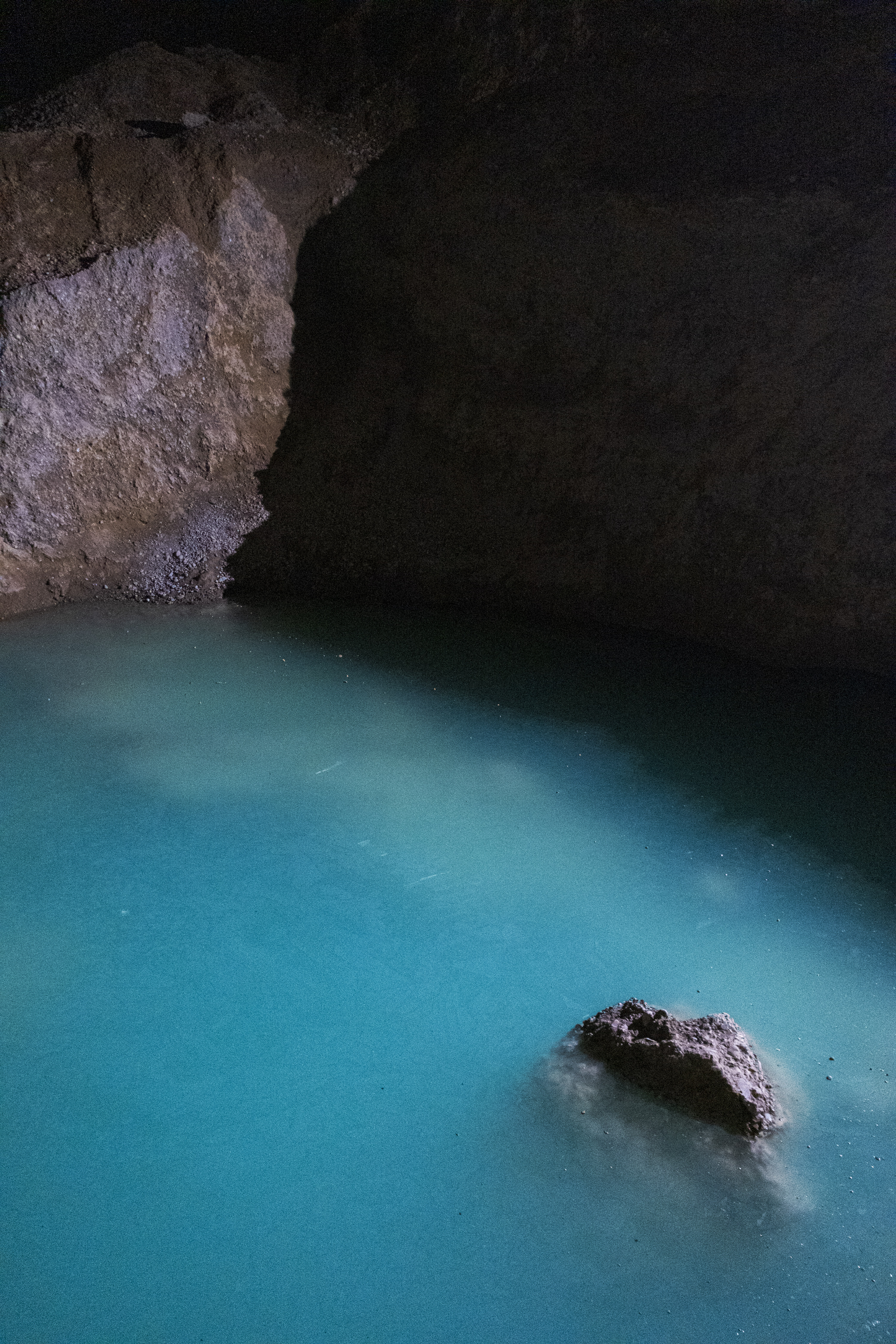


As a kid I
built castles with soil. Equipped with bright yellow rainboots on still too
tiny feet I crossed sand piles, exploring the elements underneath me. Every now
and then I would tear an earthworm apart. Roaming on the land was my favourite
adventure.
In southwest Germany, the most valuable resource lies underground. The natural deposits, mostly stones and sand, show suitable qualities for concrete production. This attracts mining companies that see value in the soil: Concrete is a high economic demand. Extractivism – the extraction of these resources - is divisive because it lies at the crossroads of economic development and environmental protection. The needs of our society dictate the destruction of our landscapes: Extractivism becomes necessity.
Visual research into an economy that’s inevitable, that transforms my homeland and of which I have doubts.
In southwest Germany, the most valuable resource lies underground. The natural deposits, mostly stones and sand, show suitable qualities for concrete production. This attracts mining companies that see value in the soil: Concrete is a high economic demand. Extractivism – the extraction of these resources - is divisive because it lies at the crossroads of economic development and environmental protection. The needs of our society dictate the destruction of our landscapes: Extractivism becomes necessity.
Visual research into an economy that’s inevitable, that transforms my homeland and of which I have doubts.
Den Haag is facing a housing shortage. As a consequence, a lot of its citizens have issues in finding suitable accommodation, and are affected by inappropriately high rental prices. Amongst them there are students, whose hope to build a better future is too often hindered by the failure of getting a basic human need – a place to live. Lacking sufficient social support, they hop from one friends’ couch to another, or reside in expensive hostels, suffering from emotional distress. In such precarious living, squatting becomes for some the solution.
The works research into the subculture of students occupying empty houses for living. When a basic need is not guaranteed, civil disobedience might take place as a way to confront systematic inadequacy. That is done in creative ways that, as the exhibition shows, put forward reflections on the execution of anti-squatting and vacant property laws.
︎ Collaboration with Lina Selg and Dario di Paolantonio
︎︎︎ Project website link
The works research into the subculture of students occupying empty houses for living. When a basic need is not guaranteed, civil disobedience might take place as a way to confront systematic inadequacy. That is done in creative ways that, as the exhibition shows, put forward reflections on the execution of anti-squatting and vacant property laws.
︎ Collaboration with Lina Selg and Dario di Paolantonio
︎︎︎ Project website link
Commissioned by Creative Court, het geluid Maastricht and H401
2021-2022
The precarious situation of gig-economy workers
Originally started as the sharing economy, proponents foresaw a transformation of the experience of work – flexibility, autonomy, and reasonable income for workers. Soon, this innovative concept converted into the exploitation of labourer, now it’s called gig economy. Present days society on-demand calls for individualized services as much as never before. Work opportunities and the accessibility of it increase rapidly through the digitalization of international service providers, assigning digital profiles of real-life workers to physical work.
This project focuses on the status quo of labour conditions and rights of food delivery riders, a flagship branch of the gig economy. It unravels the legal grey area in which companies offer their service, and questions the taxonomy of gig-workers – either freelancer or employee, or a third option? From the point of view of a gig-worker it touches upon personal doubts and fears in a precarious working environment. Diaristic photographs, juxta positioned with in-app screenshots and spoken word form a video that serves as the audience experience. The work aims at European policy makers as support to establish fair market conditions and appropriate labour rights for gig economy workers.
︎︎︎ see full video
Originally started as the sharing economy, proponents foresaw a transformation of the experience of work – flexibility, autonomy, and reasonable income for workers. Soon, this innovative concept converted into the exploitation of labourer, now it’s called gig economy. Present days society on-demand calls for individualized services as much as never before. Work opportunities and the accessibility of it increase rapidly through the digitalization of international service providers, assigning digital profiles of real-life workers to physical work.
This project focuses on the status quo of labour conditions and rights of food delivery riders, a flagship branch of the gig economy. It unravels the legal grey area in which companies offer their service, and questions the taxonomy of gig-workers – either freelancer or employee, or a third option? From the point of view of a gig-worker it touches upon personal doubts and fears in a precarious working environment. Diaristic photographs, juxta positioned with in-app screenshots and spoken word form a video that serves as the audience experience. The work aims at European policy makers as support to establish fair market conditions and appropriate labour rights for gig economy workers.
︎︎︎ see full video

Fernweh stands for everything else but present
day society - a life without control, but with
agency, self sustainable without restrictions
against the artificially created norm. Distrustful
towards state and control mechanisms,
alternative thinkers identify nature as a
hideaway, connecting to the roots
and living with the sun. A romantic fantasy
This project aims at the longing towards the unknown which is embodied by people who attend Rainbow Gatherings.
︎︎︎Exhibition website
day society - a life without control, but with
agency, self sustainable without restrictions
against the artificially created norm. Distrustful
towards state and control mechanisms,
alternative thinkers identify nature as a
hideaway, connecting to the roots
and living with the sun. A romantic fantasy
This project aims at the longing towards the unknown which is embodied by people who attend Rainbow Gatherings.
︎︎︎Exhibition website